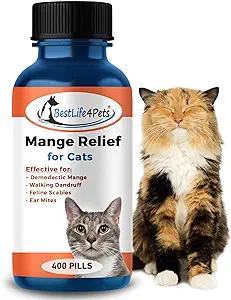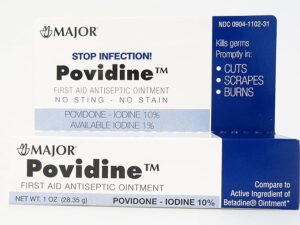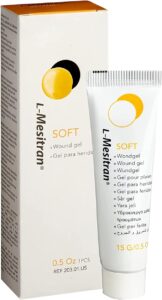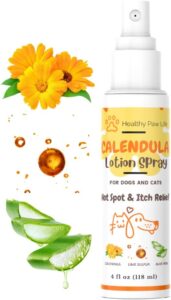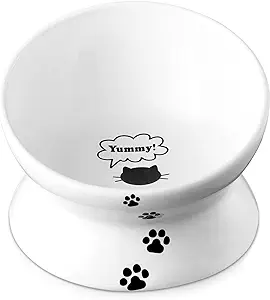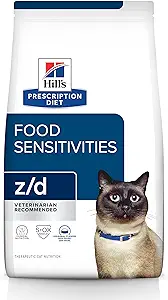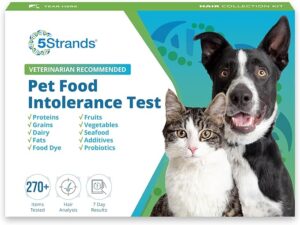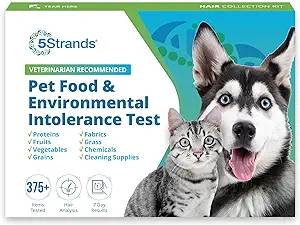What can cause an itchy nose in a cat?
Unfortunately, there are quite a few things that can be the reason for your cat to have an itchy nose.
- Parasites
- Skin inflammations/skin infections
- Dry skin
- Chemicals
- Allergic reactions
Below are all causes for an itchy nose in cats explained and what you can do about it.
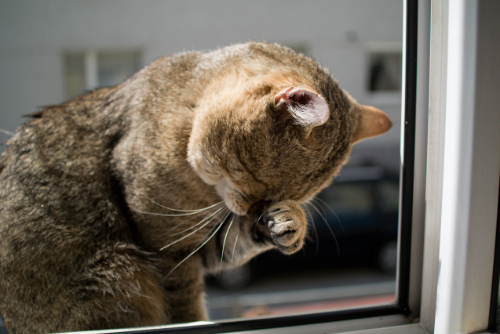
Parasitic infections that give your cat an itchy nose
It is not very common in cats, but they can get certain mites on their body. Those mites dig tunnels in the skin and cause an itchy nose. Incidentally, this is usually on several places on the body, but the head is a favorite. You may also see some crusty or flaky skin in this case and a bit of balding.
Treating parasites such as mites is quite easy. You just need to treat your cat with a mite killer. You can use Stronghold, Bravecto or Advocate for this. Unfortunately, these resources are only available at your vet’s counter and are not available for over-the-counter sale in regular stores. But you can buy the following product to get rid of the parasites that are causing the itchy nose in your cat. Though, this is not as strong as the products you buy from your veterinarian.
Skin inflammations and skin infections
When the skin is damaged in some way, the skin can become inflamed. If bacteria also develops in the damaged skin, we call this a skin infection. Both of these skin problems can cause your cat’s nose to be quite itchy. With a skin inflammation you see a red irritated skin. With skin infections you not only see a red, irritated skin, but also a wet spot. Sometimes even clearly purulent. No wonder your cat suffers from an itchy nose.
Since skin infections contain bacteria, we will have to prevent bacterial growth. You can do this by rubbing your cat’s itchy nose with an iodine ointment twice a day. However, if he can reach the spot with his tongue, which is often the case, then this treatment is not the best choice. The iodine ointment can cause your cat to have a bit of diarrhea if he licks it up. In that case, honey ointment is less potent, but has fewer side effects. You should also apply this honey ointment to the spot on your cat’s nose twice a day. In most cases, a course of 5-7 days is sufficient for both iodine and honey ointment. You should see after about 3 days that the skin is starting to recover. Your cat will then suffer a lot less from an itchy nose.
Dry skin as a cause of an itchy nose in your cat
A cat can also get an itchy nose when its skin is a little dried out. This especially plays a role in the winter months when your cat is sleeping over a radiator for 20 hours a day. In this case, you can see a bit of dull skin showing through on the bridge of his itchy nose. Sometimes you can also see some flaking dandruff flakes. However, a dry nose never causes red, irritated skin or crusts. Unless he made them himself while scratching.
You can treat his dry, itchy nose with a greasy balm suitable for cats. In principle, you can apply this to your cat’s nose indefinitely, but 3x a day is usually more than enough. Depending on how dry it is in your home, your cat may sometimes need it for a long time. But sometimes only for a day or 5. During use, your cat should soon no longer suffer from an itchy nose.
Chemical or irritants
Actually, this piece belongs to the skin inflammations. The chemicals can cause irritated and inflamed skin. Certain cleaning products, certain plant substances and pesticides in particular often cause complaints of an itchy nose in cats.
As long as the skin of your cat’s nose has not been damaged by the chemical or irritating substances, it is usually sufficient to clean your cat’s nose with a little water with some hand dishwashing soap (not for the dishwasher!!!). Clean his nose with a cloth. The dish soap is very powerful in removing the chemical and irritants from the nose. After removing these substances, you can let the nose dry for a while and see if your cat still has an itchy nose an hour later. If this is the case, you can apply some itch-relieving calendula ointment to support the skin. Usually it only takes a day or two before it healed.
Allergic reactions as the cause of an itchy nose in your cat
If the symptoms of an itchy nose in your cat do not disappear with the above treatments, it is possible that it is an allergic reaction. We can then divide this allergy into three groups: a contact allergy due to contact of the nose with, for example, the food bowl. Or a food allergy in which an allergy is triggered by substances in the food. But it can also be an allergy to substances in the air such as tree pollen, grass pollen or dust mites. All of them can cause a pretty itchy nose.
A contact allergy
Many cats are allergic to metal or to certain substances in plastic. Because the nose touches the edge of the food bowl while eating, your cat can get itchy on that spot. The lesions are then very local on the tip of his nose near where the food bowl comes into contact.
The solution in this case is quite simple. Buy a ceramic food bowl so that an allergic reaction cannot occur. The itching on your cat’s nose will resolve within a few days.
Food allergy
A food allergy usually arises on the basis of a certain protein source (usually a certain animal species, for example, beef proteins) or a certain type of grain (for example, wheat). To determine this, you can give your cat a special food without those substances for 2 months. You probably won’t see a difference for the first 4 weeks. After all, the allergic substances still have to be eliminated from your cat’s body. In the last 4 weeks you should see your cat’s skin recovering. At least, if there is a food allergy. If the itching on your cat’s nose has not resolved after 8 weeks, this will not happen later on.
As the best food for the food allergy test, you can use Hill’s Z/D. If this has an effect, you can give the food for the rest of his life. But you can also switch to the cheaper foods for food allergies. Most brands have one. In many cases, they also help sufficiently when there is a food allergy. But you first want to make sure that a food allergy is really the cause of your cat’s itchy nose. That is why it is best to use the strongest allergy food first. If your cat gets complaints again with the less strong hypoallergenic food, you can go back to the Hill’s Z/D.
If you don’t want to wait for the 8 weeks to pass, you can ask your vet to do a blood test in your cat. In that case, I advise you to also have the atopic reaction (see below) investigated. It is not cheap! But then you know as much as possible.
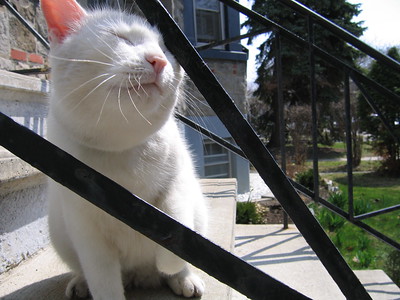
An allergy to tree pollen, grass pollen, house dust mites, etc.: the atopic allergy.
Unfortunately, an atopic allergy is a bit more difficult to diagnose yourself. In principle, it is necessary to remove the source of the allergic reaction from your cat’s life. And for that you need to know what he is allergic to.
This allergy is best diagnosed by your vet. He or she can take some blood from your cat and send it for testing for allergic antibodies in his blood. They usually test for around 30 substances. And very often you can’t eliminate the source of the allergy from your cat’s life either. Tree pollen or grass pollen cannot be removed from the air. And you can’t completely eliminate dust mites from your cat’s life either. In this case, it is usually necessary to give your cat medication for the rest of its life for the itching of its nose. Still, most people like knowing for sure that it is an atopic allergic reaction.
Worth considering
As an alternative to the blood test, the following test gives a similar result, according to the manufacturer. You can perform this test yourself at home and send it in. However, I have no experience with this test and can therefore not say whether it is a suitable test. But if you are interested in it, you can try it.
Good luck!
Hopefully you will soon be able to relieve your cat from his itchy nose. Good luck!

